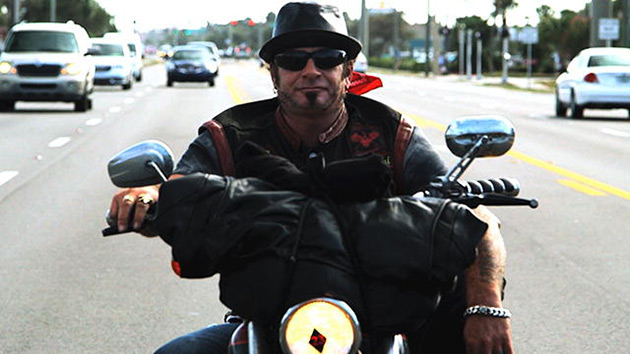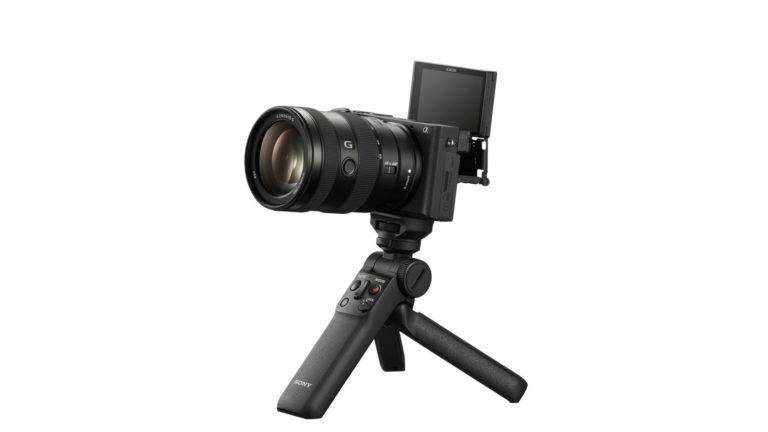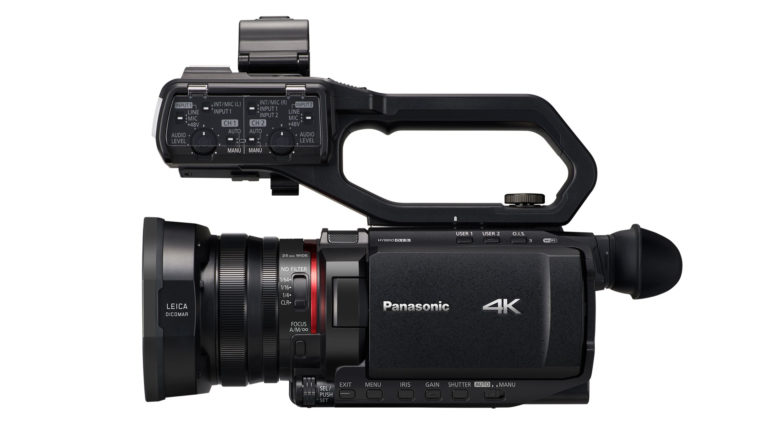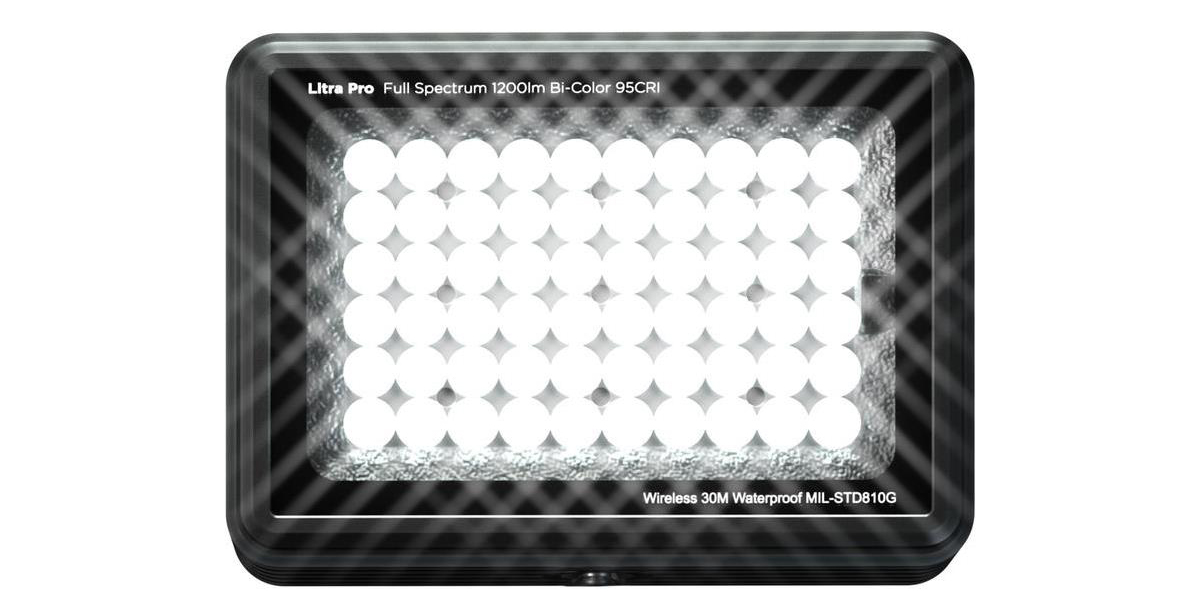How Free Reign Media Got Access, Gained Trust, and Navigated Motorcycle Club Politics
Airing Fridays at 10 p.m. on Discovery Channel, Warlocks Rising is a four-part reality show that takes a look at the stories behind a Florida chapter of The Warlocks, one of the "1%er" motorcycle clubs in the U.S. that are often considered outlaws by the police and society at large. The show is being promoted as a look into a violent, secret subculture, but series co-creator Cameron Casey says there's a deeper narrative throughline that has to do with strength, loyalty, and brotherhood under pressure in an often unfriendly world. We asked Casey about getting the bikers on board, selling the idea to Discovery, and how production navigated some very sensitive situations.
StudioDaily: Fill us in a little on Free Reign Media. You're an independent production company?
Cameron Casey: Free Reign Media is my personal production company, and I have various partners in various projects. Stuart Schonfeld, my producing partner, first introduced me to the Warlocks. I've been producing TV for 20-plus years, and I've carved out a kind of niche for myself by tackling interesting characters and gaining access to worlds that other people don't always get access to. That's what I'm building my business around — my access to unique worlds and their unique stories. That's the philosophy of my company.
Seems like that's the perfect skill set for reality TV. What did you know about the Warlocks before you started, and how did you get the idea that there could be a reality show about these guys?
Stuart [Schonfeld] has been one of my producing partners since the days when I was directing commercials. He had met some Warlocks at a wedding — very randomly — and was speaking with one of them, Shotgun, about production. They eventually talked about doing a documentary on the club and the conversation evolved into doing a docu-reality show. The club had been approached for projects many times prior, but ignored these requests. Stuart’s primary goal was to make it clear that any story told would be the Warlocks’ story and it would be done honestly and authentically. Stuart spent the next six months flying to Florida, talking with key people and building up considerable trust and access. Stuart, working with Shotgun, Troy and Slob, also put together a core group of people from the Warlocks that would eventually become the people you see featured in the show.
Stuart’s background is in features and high-end commercials and, to move forward, he was looking for someone immersed in television. Due to our past working relationship, he contacted me both for my television experience and my directorial background, and wanted my collaboration on taking an extensive amount of research he compiled and turning it into story.
He and I then spent the next year talking to more and more Club Members and building up further trust. Their world is built on relationships and trust, and if you don't have that with your subjects, you're not going to get anything real.
So Stuart really got the ball rolling?
Yes, definitely. He saw the opportunity, and I think there was a natural trust because of the time spent and face-to-face meetings. He had extensive conversations about what aspects would and would not be portrayed. We later found out these guys had their patches on the line for this show, so I believe that says volumes about the trust we built. [Bikers wear patches to indicate their membership in and loyalty to specific clubs.] Because the guys that we did the show with were only a few chapters of a very big organization, that's been difficult to navigate since the start. The hierarchy and organization are very complicated. There is a national president who presides over the entire nation of the Warlocks and then there are chapter bosses who have to answer to the nation, almost like a board of advisors. It feels kind of like a corporation, but most of the older guys are Vietnam War veterans, so they treat it very much like a military unit.
It's interesting how they bring those life experiences to the structure of the organization.
They're proud, patriotic Americans who came back to the States after being at war. They weren't very popular, so they banded together and created their own brotherhood out of necessity, to feel the camaraderie and acceptance they didn't get in normal society. That becomes very apparent when you spend time with these guys. The irony is that federal agents and local police forces are always after these guys, but calling them outlaws is ironic and hypocritical. They're just living by their own rules and doing their own thing — which is very American at the base of it. Some of these Warlocks are highly decorated soldiers, with multiple purple hearts and multiple silver stars. They fought bravely and proudly for their country and came back and were treated like crap. So they turned inward and formed their own bonds. At the end of the day, that's what these guys wanted to get across in the show. “We might live by our own rules, but we have a brotherhood that's supportive, and we look out for each other.” Out of love and respect — that's kind of their motto. There's a strength there that keeps them together. It gets them through life.
So they trusted that you understood what they wanted to communicate, and wouldn't betray that?
Both Stuart and I put our names and reputations on the line to ensure they got their story told the way they wanted it told. It's still a sensitive thing. A lot of members of the club weren't very accepting of this show. They were against us from the start. They feel really strongly about their patch, and don't want a bunch of Hollywood TV guys exploiting their patch. These guys fought hard to get where they are. Frankly, I understand it and I respect it.
How did you manage that during production — making sure you didn't cross a line in what you depicted?
Teaming with Discovery Studios was the smartest thing we could have done. Simon Andre from Discovery Channel introduced us to Eddie Barbini at Discovery Studios and recommended Brian Knappmiller as showrunner. We had multiple networks bid on the show. One of the other networks had made a slightly better financial and creative deal, but knowing we had the support that we had from Simon and then later from Eddie, we knew Discovery was the place to be.
The Warlocks who were working with us read all the storylines, and they signed off on stuff as we went along so that we, as producers, weren't put in harm’s way. They're very serious about this. These guys live and die by their patch, so you can imagine what it's like when a producer comes in to tell the story and they don't want the story to be told. One of the club members, Shotgun, was appointed as the advisor. He would see the cuts and sign off on them. Shotgun, along with another member, Troy, would help us with the larger political picture of communicating with the other chapter bosses and also the national president.
What kind of access were you given?
We had unique yet highly guarded access into their lives and club. Yet still there was much we were not privy to for obvious reasons. They brought us into very select situations with cameras, but at all times we had to respect their laws, privacy and order within the club. The restrictions were totally understandable and we respected this at every turn. They were able to open up parts of their lives like no 1%er club has ever done to the real world. These guys, at the end of the day, wanted to tell their story and be real about it.
How did you get Discovery on board in a co-production deal?
We had been developing this for well over a year, and Stuart for six months before bringing it to me at Free Reign Media. We had mountains of material; pages and pages of storylines and character development. We outlined several seasons before we started pitching. We wanted to be protective of the guys and get their stories told, so we put the time in and put together a very compelling presentation. We sent it to several networks, but Discovery gave us a straight-to-series offer that we couldn't turn down.
What was the crew like during the shoot?
The team at Discovery Studios worked closely with us to handpick the right guys for the job. They really understood the material and what needed to be done. Eddie Barbini is a seasoned TV veteran especially with this type of material and he nailed this show. He pulled top crew for each department, from production through post and never compromised the vision we set out to achieve. He worked with the network on our behalf to make sure we had everything we needed and to push the limits of what could be produced. Brian Knappmiller was the showrunner and executive producer. He was our frontline guy both during the production and then in the following months of editing. He had the toughest job and made it effortless. He managed multiple talent, always-changing storylines and delivered what we set out to achieve. Ian Jones was co-executive producer, Laurence Frank was supervising story producer, Stuart was producing on the ground, Don Poquette was line producer, and Jason Fay was field producer. We had an amazing camera crew with Terry Pratt as our DP operating main camera, Oliver Lynch as second camera and Ariel Benarroch as AC and additional camera when needed. All our camera guys are DPs in their own right, but they saw the opportunity to work with Terry on a unique project. David Ortega was our trusted sound guy and we had a great team of support crew.
We also had an incredibly talented editorial department headed by post producer Tessa Treadway and editors Alex Albanese, Nick Arico, Rob Licalsi and Ron Romberger.
We used Canon C300s and shot very documentary style. A lot of it was shot single-camera, very film-like. It kind of has the feel of a single-camera shoot. We did a lot of soft focus, and a lot of long-lens stuff. We even brought in swing-and-tilt lenses, which were sort of my idea from the start. I used them a lot in the 1990s on music videos to create a texture of out-of-focus depth of field to represent the dark secrecy and convoluted world we were in. And we had a voyeuristic camera as well. We tried to be a fly on the wall and give you a glimpse into the world from a distance. There’s always a sense of danger and violence every minute of the day, but there is a crazy sick sense of humor and camaraderie that seems to overshadow everything else.
Were there any moments you felt like you might not be able to get the show done after all?
From the start, production was challenged. Obstacles at every turn, literally, starting with the near death of Slob Rob, one of our main characters who was in a life-threatening motorcycle accident the first week of filming. We also had a little hiccup at the end of the shooting. We were done filming and already had the episodes cut, and the Warlocks decided they didn’t want the show after all. It was like, "No, I don't think we want this show to air," and they were talking to us about shutting the show down completely. But we were able to somehow navigate through this, and give some of the top members access to the cuts — thanks to an amazing post team. They personally went through every cut. So we were able to gain their trust and get them to sign off and let the show move forward.
What kind of response did you get when the show actually started airing this month?
I’ve heard from people all over the country who love it. I’ve heard from many of the Warlocks and they're very proud and happy, and word on the street is other bike clubs like it as well. One of the first calls I got after the show aired was from one of the top members of a bike clib up in Oakland called the East Bay Dragons. He was so excited and proud, congratulating me, saying, "That was a great show, but wait 'til we tell our story." So he wants to tell the story of their historic club as well.
Are you looking at a second season after these first four hours air?
We have four hours, but we shot enough for several other episodes if the ratings are good and if the Warlocks and Discovery feel it’s a good idea. They wanted to see what direction the show was going. There are challenges with a second season — first, if the Warlocks want us around again and second, whether Discovery is ready to take this on again. It wasn’t easy for anyone. They have a lot of things to consider, including safety, while doing a show like this.
What's next?
I’m talking with the East Bay Dragons. It's the biggest and oldest black bike club in the country. They've been around since the early 1950s. They're an amazing club with a history that's unbelievable. One of the club members, K Cloud, had a history on the streets. As he got older, he opened a bakery where he bakes cakes and desserts. But he's a biker! Beyond that, the bakery was the original office for the Black Panthers in the 1960s. The history of the club is phenomenal. I'm gaining access to all kinds of worlds. I've been working with the U.S. State Department for a couple of years to tell the stories of people working in USAID in embassies around the world. I've got unique access into some pretty interesting worlds. Through my other production company, VelocityGroup.tv, I’ve got access to Capitol Hill, the Brazilian BOPE, Brazil’s elite special-forces crime unit, and other high-profile people that I can’t mention at this time.
Last question: What was your biggest challenge in making Warlocks Rising?
It was definitely one of the hardest productions I've ever been involved with in my career, and I've done some pretty intense stuff. I grew up in San Francisco, but I started shooting rap videos on the streets of Oakland in the early 1990s when the murder rate was #1 in the country, and we all carried guns on set. I'm no stranger to being in harm's way to tell stories and get stuff on film, but this world is complicated and political and full of misinformation. In order to maintain secrecy, they make sure [outsiders] never know what's true and what's not true. We had to navigate that every day. Fortunately, our team was used to being out in the field shooting shows like Ax Men [on History], where they had to dodge logs to save their lives. Our production guys on the ground every day were bulletproof. They were solid and stuck to their guns (so to speak) and got through it. But you had to work out riddles on a daily basis. And I think that added to the spirit of the show. My philosophy of production has always been that if it feels like it's a disaster and things are falling apart and there's chaos during production, whatever's on screen is going to be really good.
Crafts: Shooting
Sections: Creativity
Topics: Project/Case study cameron casey discovery free reign media warlocks rising
Did you enjoy this article? Sign up to receive the StudioDaily Fix eletter containing the latest stories, including news, videos, interviews, reviews and more.










love this show. second season please….
yeah great show hope the Warlocks want to do more….it’s good getting coverage from both sides – shows such as Gangland and this one.
Let’s have more w l r big fan in ky